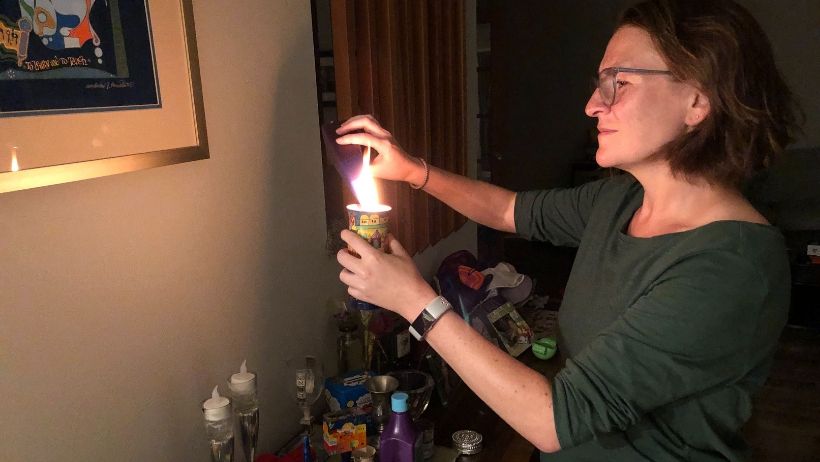Every Monday morning I join our Foundation School learners for Havdalah. We sit together in a big circle, share what we’re grateful to God for, and then say goodbye to Shabbat and hello to the awesome week we’ll have together. We mark this transition by using the Havdalah candle. Over the years we’ve had many different candles, some tall and thin, others short and wide. Some are multi-colored, and others are solid or just blue and white. With each new candle the children check out how many wicks the candle has, how bright and big the flame is, and how loud the sizzle is when we put the fire out. We are fascinated by the burning flame and how by the act of sanctifying that fire we move from Shabbat, a holy, sacred time, into the rest of the week. Then the following Friday night we start all over again by lighting the two Shabbat candles. In and out of sacred space we float by the sparking and snuffing of a flame.

The power of fire in our Jewish faith has been evident since the beginning of the Torah. In our parshah this week we read the final sections of text from the fourth book of the Torah, Bamidbar. Parshiyot Matot and Masei begin with the discussion of the different vows Israelites might make, and then they detail the requests of the various tribes as they get ready to enter the Promised Land. The chapters end with the final placements of all the tribes as they prepare to divide their land inheritance.
In chapter 31, verse 23 we read about the ways in which we can purify objects. If an object can withstand fire, then it is to be passed through the fire. This ritual is still used today to kasher (to make acceptable for kosher use) utensils from milk to meat or vice versa. Although the metal remains unharmed, fire is able to cause chemical changes to other materials, thus changing their state. Metal doesn’t necessarily change its state (except under extreme heat), but the fire still represents that transition.
Heat changes things. It leaves a mark, literally, in the form of a blister or worse when our skin touches fire. And figuratively, a fire within our souls can ignite us to work for change in our own lives or the world around us. This week, the words of our ancient text require us to embrace fire as a mechanism for change and remind us how we might harness that fire for good. May we move from one phase into the next with our passion at the forefront. May we be inspired by the dance of the flames of whatever lights we kindle.
– Rabbi Eve Posen
Source: Burning Up – Parshat Matot-Masei 5779



